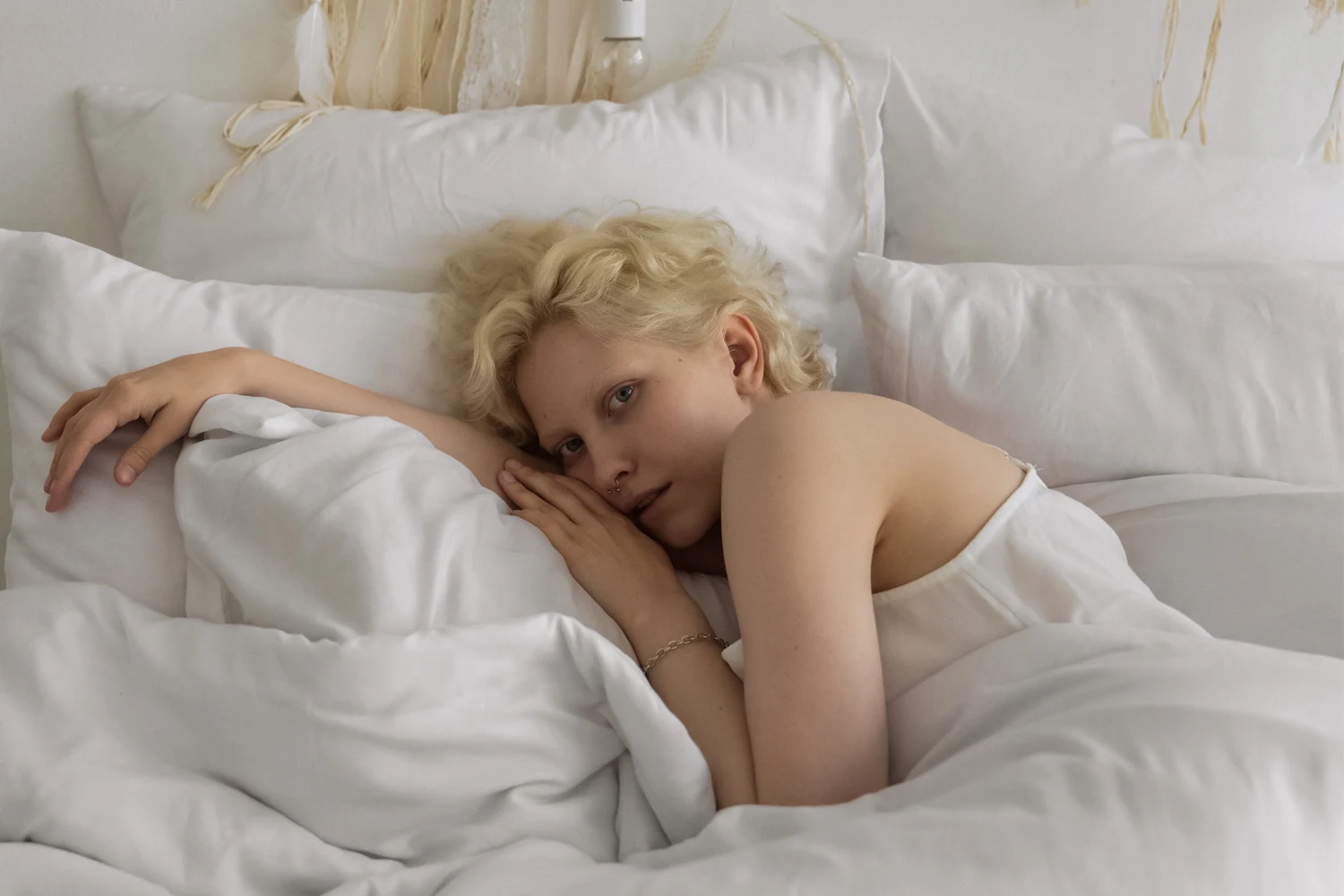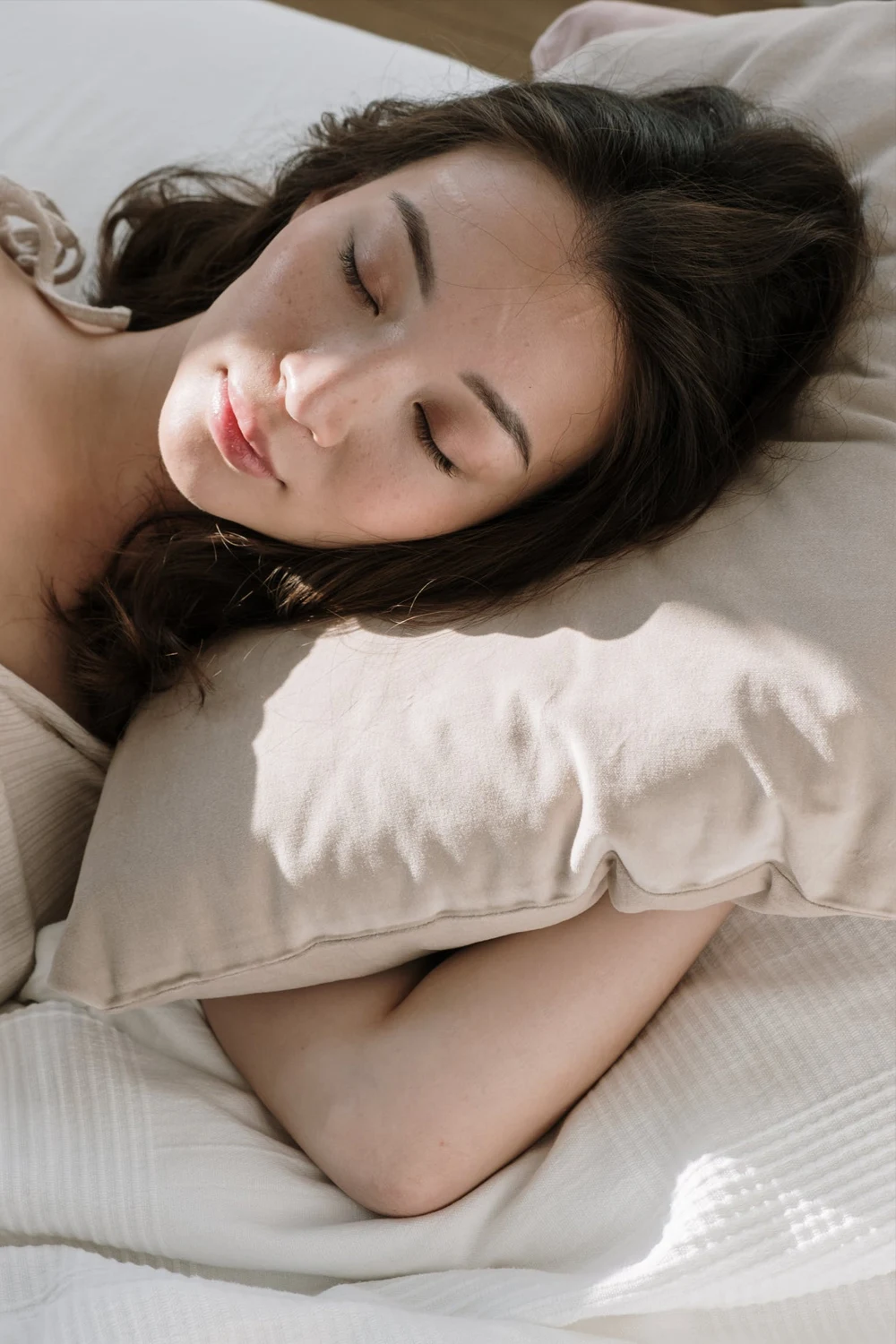You've probably heard about "beauty sleep" so many times that this phrase stopped making actual sense to you. But, despite all the prejudice, the "beauty sleep" saying is a real thing. Sleeping the right amount of hours per day is an important ritual that will help you maintain both internal and external health. And, as you know, the key to external beauty lies deep within.
What is the "Deep Sleep" Phase?
Sleep is a state of full relaxation to your muscles and mind. Still, during this time, your body does a very important job of cleaning and repairing your systems, including your internal organs and skin. The deep phase of sleep is characterized by the natural rise of growth hormones, especially in children and young adults. As a result of the hormonal rise, the cells also show increased production, repairing stress and UV damage.
As you can see, the "deep sleep" phase can also be called the "beauty sleep". It is the holy grail phase of the whole night, as the skin-repairing processes happen only during this time. Other benefits of the "deep sleep" phase include strengthening the immune system, relieving stress, and restoring energy levels.
How Long Should the "Beauty Sleep" Last?
The naturally occurring question is how long should you sleep to get the necessary amount of beauty rejuvenation? It all depends on your age and lifestyle. Healthy adults need between 7 to 9 hours of nighttime sleep. But it is not only about the quantity, but the quality of sleep matters as well. Building healthy sleep habits are just as crucial for your appearance as sleep longevity. Sleep hygiene includes going to sleep and waking up at the same time, before bed relaxation, and limiting caffeine and alcohol intake.
Sleep deprivation is one of the worst enemies of your skin's radiance. It leads to premature skin aging, puffiness, dark circles under your eyes, and fine lines on your face. Not getting enough sleep may also be the cause of increased levels of cortisol in your blood, which also has a negative impact on your overall health.
How You Sleep Is Also Important
The way you lay on your pillow at night also affects your skin. The horizontal position negatively affects the fluid flow in the body, which is why we all struggle with swollen faces in the morning. Although side sleeping is good for column relaxation, it can lead to fine lines and wrinkles on your face. It is also bad for the décolletage area.
The best position for the face is to sleep on the back. This way you won't be touching your pillow with your face skin, so it will stay cleaner, and fresher, and won't be strange-looking in the morning. A silky-smooth, clean pillowcase can also minimize the negative impact of rubbing on your skin. It is not as harsh as cotton and may prevent fine lines and wrinkles.
Wrapping Up...
In conclusion, the concept of "beauty sleep" is not merely a myth but a scientifically supported phenomenon that holds true significance for our overall wellbeing and appearance. The intricate interplay between sleep and skin health, the body's reparative processes, and cognitive functions cannot be overlooked. Countless studies have established a strong link between quality sleep and enhanced skin complexion, reduced signs of aging, and improved cognitive abilities.
As we've explored the mechanisms behind beauty sleep, it becomes evident that the body's nighttime rejuvenation is a critical component of maintaining a youthful and radiant appearance. Adequate sleep supports the production of collagen, the body's natural anti-aging agent, while also minimizing inflammation and promoting optimal cellular function. Beyond skin benefits, the restoration and consolidation of memories, emotional resilience, and creativity are all enhanced during restful slumber.













